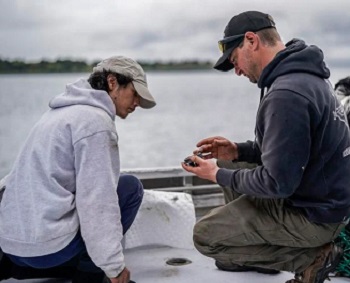 Lane Bolich first came to work in Alaska for the freedom and excitement that comes with being a fisher. A self-described adrenaline junkie, Bolich moved from his hometown in rural Washington state because he loves being on the ocean even in cold winter weather and it gave him the chance to make more money than back home. After working as a deckhand for two years on a family friend’s boat, Harmony, he took the wheel as captain this year at just 20 years old. Bolich is a rarity in an aging industry with high barriers to entry, equipment and access rights are costly, and increasing unpredictability as human-caused climate change alters marine habitats. As some fish populations dwindle and fewer people pursue the trade, fishers and conservation groups are actively working to bring in and retain the next generation of fishers through grants and training even as the industry continues to shrink in Alaska. 19 photos, >>click to read<< 09:38
Lane Bolich first came to work in Alaska for the freedom and excitement that comes with being a fisher. A self-described adrenaline junkie, Bolich moved from his hometown in rural Washington state because he loves being on the ocean even in cold winter weather and it gave him the chance to make more money than back home. After working as a deckhand for two years on a family friend’s boat, Harmony, he took the wheel as captain this year at just 20 years old. Bolich is a rarity in an aging industry with high barriers to entry, equipment and access rights are costly, and increasing unpredictability as human-caused climate change alters marine habitats. As some fish populations dwindle and fewer people pursue the trade, fishers and conservation groups are actively working to bring in and retain the next generation of fishers through grants and training even as the industry continues to shrink in Alaska. 19 photos, >>click to read<< 09:38
Tag Archives: Alaska Longline Fishermen’s Association
Trump’s Regulatory Freeze Throws US Fishing Industry Into Chaos
 President Donald Trump’s regulatory freeze has injected chaos and uncertainty into a number of lucrative American fisheries, raising the risk of a delayed start to the fishing season for some East Coast cod and haddock fleets and leading to overfishing of Atlantic bluefin tuna, according to Reuters interviews with industry groups and federal government employees. America’s $320 billion fishing industry relies on a branch of the federal government, the National Oceanic and Atmospheric Administration, to manage coastal fisheries. Under a 1976 law, NOAA’s National Marine Fisheries Service develops management plans for 45 fisheries, setting quotas and determining the start and close of fishing seasons, in consultation with federal government scientists and local fishermen. more, >>CLICK TO READ<< 09:19
President Donald Trump’s regulatory freeze has injected chaos and uncertainty into a number of lucrative American fisheries, raising the risk of a delayed start to the fishing season for some East Coast cod and haddock fleets and leading to overfishing of Atlantic bluefin tuna, according to Reuters interviews with industry groups and federal government employees. America’s $320 billion fishing industry relies on a branch of the federal government, the National Oceanic and Atmospheric Administration, to manage coastal fisheries. Under a 1976 law, NOAA’s National Marine Fisheries Service develops management plans for 45 fisheries, setting quotas and determining the start and close of fishing seasons, in consultation with federal government scientists and local fishermen. more, >>CLICK TO READ<< 09:19
Charting a course toward seafood independence for Alaska’s vulnerable food systems
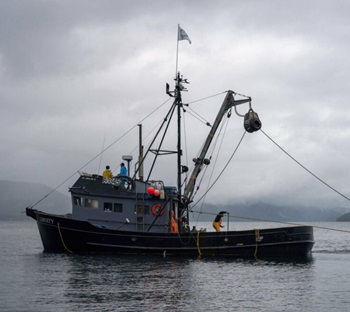 As a commercial fisherman based in Sitka and the executive director of the Alaska Longline Fishermen’s Association (ALFA), I’ve spent decades navigating Alaska’s challenging waters and the headwinds facing our fishing communities. Alaska’s coastal residents are resilient, but they are up against a new magnitude of challenges. The loss of fishing access and community-based processing capacity, along with a dearth of local markets for seafood, are straining once vibrant fishing economies up and down our coastline. I recently contributed to a fisheries access report commissioned by the Alaska Sustainable Fisheries Trust (ASFT), which highlights the outmigration of fishing access in Southeast Alaska. Communities with historically robust local fishing fleets now see few active vessels based in town. This trend is acute in communities such as Kake, which has lost its local processor — and with it, a viable market for resident fishermen. Through interviews and in-person engagement, ASFT’s report found that a common concern among fishermen was the loss of a local fish buyer. When this happens, resident fishermen often sell their permits or abandon fishing altogether. more, >>CLICK TO READ<< By Linda Behnken 12:05
As a commercial fisherman based in Sitka and the executive director of the Alaska Longline Fishermen’s Association (ALFA), I’ve spent decades navigating Alaska’s challenging waters and the headwinds facing our fishing communities. Alaska’s coastal residents are resilient, but they are up against a new magnitude of challenges. The loss of fishing access and community-based processing capacity, along with a dearth of local markets for seafood, are straining once vibrant fishing economies up and down our coastline. I recently contributed to a fisheries access report commissioned by the Alaska Sustainable Fisheries Trust (ASFT), which highlights the outmigration of fishing access in Southeast Alaska. Communities with historically robust local fishing fleets now see few active vessels based in town. This trend is acute in communities such as Kake, which has lost its local processor — and with it, a viable market for resident fishermen. Through interviews and in-person engagement, ASFT’s report found that a common concern among fishermen was the loss of a local fish buyer. When this happens, resident fishermen often sell their permits or abandon fishing altogether. more, >>CLICK TO READ<< By Linda Behnken 12:05
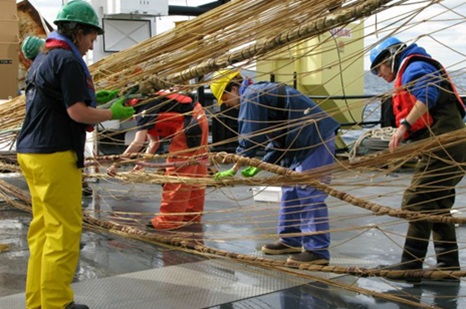
Multiple groups urge seafloor protections from pelagic trawling
A diverse group of harvesters, conservation entities and others are calling on federal fisheries managers to do more to protect seafloor habitats from midwater trawl nets they say are dragging the bottom of the ocean floor. Midwater, or pelagic trawling — used to catch schooling fish like pollock, is supposed to be fished in the water column rather than on the seafloor. For this reason, pelagic trawling is allowed in most conservation areas closed to bottom trawling — a form of fishing where nets are purposely dragged on the seafloor and damage corals, sponges and other living seafloor habitats in the process. An analysis by the National Marine Fisheries Service indicates that 40% to 100% of the width of pelagic trawl gear fished in the Gulf of Alaska and Bering Sea has been in contact with the seafloor, and that these nets, which range from 50 to 190 yards wide, are dragged for miles. more, >>CLICK TO READ<< 20:12
How a seagoing mentorship program trains ‘greenhorns’ and changes lives
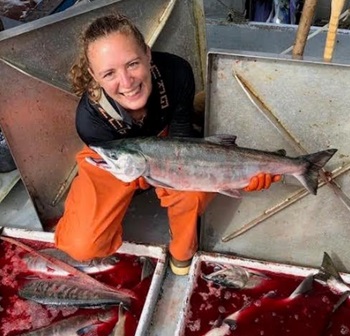 As a student at Vermont’s Middlebury College, Lea LeGardeur loved being on the water. Which proved an asset for LeGardeur, who, after teaching geography at Middlebury, decided to commercial fish in Alaska. LeGardeur’s break came when she discovered the Alaska Longline Fishermen’s Association, or ALFA, based in the small fishing town of Sitka, Alaska. The organization had an extensive record of fighting foreign fishing, trawling and depletion of resources. ALFA had recently secured a grant to fund its Crew Training Program, or CTP. The program was the brainchild of Karl Jordan, who suggested the concept to his father, Eric, shortly after Eric’s wife, Sarah, announced her decision to retire from fishing. Jordan père went on to propose the concept to Linda Behnken, the executive director at ALFA. Photos, Video, more, >>CLICK TO READ<< 07:50
As a student at Vermont’s Middlebury College, Lea LeGardeur loved being on the water. Which proved an asset for LeGardeur, who, after teaching geography at Middlebury, decided to commercial fish in Alaska. LeGardeur’s break came when she discovered the Alaska Longline Fishermen’s Association, or ALFA, based in the small fishing town of Sitka, Alaska. The organization had an extensive record of fighting foreign fishing, trawling and depletion of resources. ALFA had recently secured a grant to fund its Crew Training Program, or CTP. The program was the brainchild of Karl Jordan, who suggested the concept to his father, Eric, shortly after Eric’s wife, Sarah, announced her decision to retire from fishing. Jordan père went on to propose the concept to Linda Behnken, the executive director at ALFA. Photos, Video, more, >>CLICK TO READ<< 07:50
Western Alaska tribes, outraged by bycatch, turn up the heat on fishery managers and trawlers
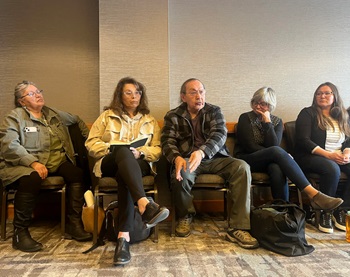 Earlier this spring, Maurice McGinty, a tribal leader from the village of Nulato, pulled out his last mason jar of smoked Yukon king. “We have no more now,” said McGinty, 80. He added: “They are pushing us, and our traditional way of life, into a hole.” Imagine hearing and reading versions of McGinty’s story dozens of times, told by Indigenous people who live along the Yukon and another iconic subsistence river in Southwest Alaska, the Kuskokwim. That’s the reality this week for the policymakers on the North Pacific Fishery Management Council, the federal commission that regulates commercial fishing in the American waters of the Bering Sea. On one side are tribal leaders from the Yukon and Kuskokwim, On the other side are representatives for the trawlers, more, >>click to read<< 13:51
Earlier this spring, Maurice McGinty, a tribal leader from the village of Nulato, pulled out his last mason jar of smoked Yukon king. “We have no more now,” said McGinty, 80. He added: “They are pushing us, and our traditional way of life, into a hole.” Imagine hearing and reading versions of McGinty’s story dozens of times, told by Indigenous people who live along the Yukon and another iconic subsistence river in Southwest Alaska, the Kuskokwim. That’s the reality this week for the policymakers on the North Pacific Fishery Management Council, the federal commission that regulates commercial fishing in the American waters of the Bering Sea. On one side are tribal leaders from the Yukon and Kuskokwim, On the other side are representatives for the trawlers, more, >>click to read<< 13:51
Alaska Longline Fishermen’s Association awarded funding for decarbonization
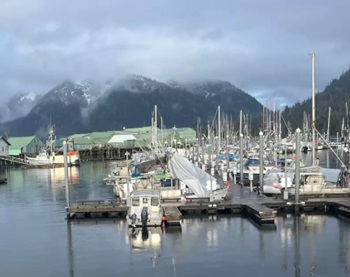 An organization that supports Alaskan small boat fishermen will be getting more than half a million dollars to help them deal with the challenges of climate change, and decrease the fishing industry’s carbon footprint. The money is an appropriations award from U.S. Senator Lisa Murkowski. The funding is going to Alaska Longline Fishermen’s Association, or ALFA. But the group isn’t just made up of longliners. Members include all kinds of commercial fishermen. Linda Behnken is executive director. She says that instead of using the money to upgrade processing plants and boats, they plan to use the money to identify ways they can support the fishing industry. more, >>click to read<< 07:58
An organization that supports Alaskan small boat fishermen will be getting more than half a million dollars to help them deal with the challenges of climate change, and decrease the fishing industry’s carbon footprint. The money is an appropriations award from U.S. Senator Lisa Murkowski. The funding is going to Alaska Longline Fishermen’s Association, or ALFA. But the group isn’t just made up of longliners. Members include all kinds of commercial fishermen. Linda Behnken is executive director. She says that instead of using the money to upgrade processing plants and boats, they plan to use the money to identify ways they can support the fishing industry. more, >>click to read<< 07:58
As climate change and high costs plague Alaska’s fisheries, fewer young people take up the trade
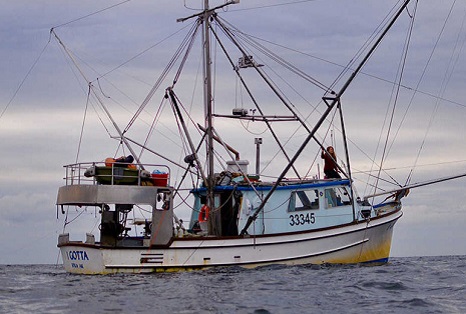
Battery-Electric Fishing Vessel Marks a Sea Change for Small Commercial Fishers
On a brisk morning this fall, a 46-foot commercial fishing boat will cruise into the cold waters of Sitka, Alaska, and cut the diesel engine. In that moment of near silence, an electric motor will whir to life. This moment will mark a sea change for Sitka’s small-boat commercial fishing industry: a transition to energy-efficient commercial fishing, powered by low- and zero-emissions propulsion systems. The boat in question, a small commercial salmon troller named I Gotta, will make history as one of the first low-emissions fishing vessels ever deployed in Alaska. Using a unique parallel hybrid battery-diesel system, the boat can travel at full speed using its diesel engine, then switch to a battery-electric motor when fishing. In this way, I Gotta’s captain, Eric Jordan, will be able to cut the boat’s fuel use by 80%. >click to read<
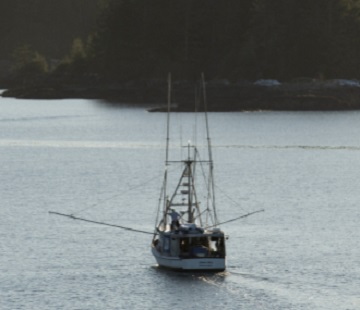
Seattle judge’s ruling might cancel Alaska commercial king salmon season
A ruling from a U.S. judge in Seattle could effectively shut down commercial king salmon trolling in Southeast Alaska, a valuable industry that supports some 1,500 fishermen, after a conservation group challenged the harvest as a threat to endangered killer whales that eat the fish. Wild Fish Conservancy, the organization that brought the lawsuit, heralded the decision as the most significant government action in decades to provide more food for starving orcas. But fishing organizations condemned the ruling, saying it threatens the region with economic disaster and would do little or nothing to benefit orcas. The state of Alaska quickly announced an appeal. >click to read< 10:12
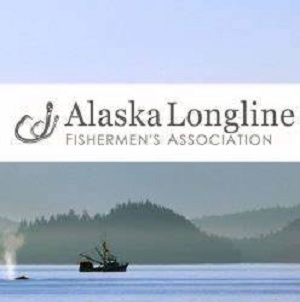
Fishing group accepting applicants for crew training program
The Alaska Longline Fishermen’s Association (ALFA), a Sitka-based fishing group, and partner organization Alaska Sustainable Fisheries Trust (ASFT) are seeking applicants for its crew training program. The program aims to provide young people an opportunity to gain experience in, as well as an understanding of, commercial fishing and its role in coastal communities, according to a release from the ALFA. Since 2015, more than 100 apprentices have been trained and placed on local fishing vessels in Southeast Alaska, and in late 2017 ALFA was awarded funds to get more boots on deck statewide. >click to read< 11:39
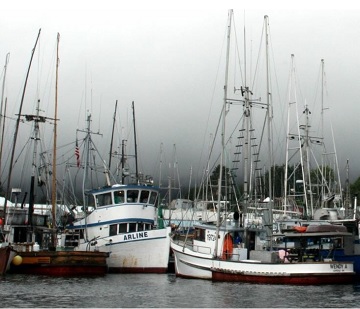
Sitka Assembly considers helping Southeast trollers in legal fight that could shut down the fishery
The Seattle-based environmental group Wild Fish Conservancy wants to stop the Southeast troll fisheries, which they say harm an endangered population of orcas. And in December, a federal judge in Washington issued a report that puts the fisheries at risk of closure. The Alaska Trollers Association is a defendant in the 2020 suit against the National Marine Fisheries Service. Sitka fisherman Matt Donohoe is the president of the Trollers Association. He says they object to the report and expect their legal expenses to increase. “Anyone claiming that Southern Resident killer whales are starving because Alaska trollers were taking food from the mouths of their babies would be laughed out of court. That’s what we thought,” >click to read< 11:48
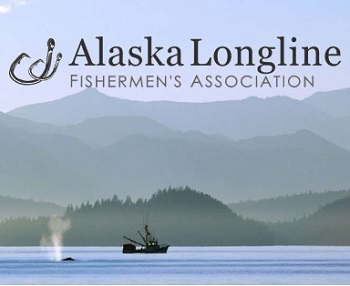
Virtual Alaska Fisherman EXPO to be held in November
The Alaska Longline Fishermen’s Association and the Alaska Sustainable Fisheries Trust are hosting a Fall Fishermen’s EXPO, aimed at providing educational workshops and training to new and experienced local fishermen as well as others with interest in the fishing sector. At the November 9th EXPO, all the workshops and presentations will be offered virtually. Commercial and subsistence fishermen of all gear types will have the opportunity to attend free and interactive classes on permit and quota purchasing, gear recycling, Energy Transitions Initiative Partnership Project updates, PredictWind updates, marine mammal deterrents and proposed regulations, mental health and commercial fishing, harmful algae blooms and more. >click to read<, and register.13:44
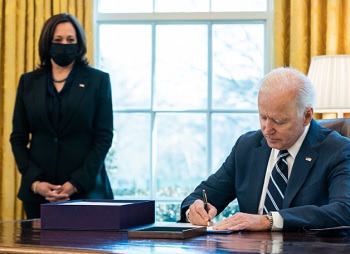
At-Sea Processors Association and Seafood Harvesters of America applaud “30×30” initiative
A Biden administration plan to conserve at least 30% of federal lands and oceans by 2030 is winning applause from the seafood industry, but questions abound elsewhere, raising political obstacles. Just about 12% of the nation’s land area is currently under some form of environmental protection, along with about 26% of the country’s ocean areas. The plan, an executive order issued by the Biden administration, and popularized as the “30×30” initiative, has won support from the harvester and processor sector of Alaska fisheries and others, (do you?) in that industry, but farmers and ranchers elsewhere remain skeptical. >click to read< 12:50
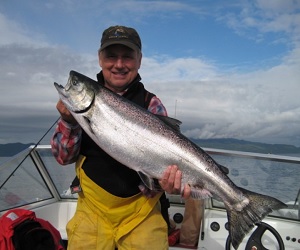
Destroying a fishery will not save Southern Resident Killer Whales – Scientists say feed starving whales farmed salmon
In less than two weeks, a Seattle-based federal judge will decide the fate of some 1,600 Southeast Alaska salmon trollers—fishermen who are already looking at the lowest allotment of Chinook in 20 years, largely due to the past three Pacific Salmon Treaty agreements that have cut, by two-thirds, their allocation of these high-value, sought-after fish. If you haven’t been following the trade press or Alaska media in the past few weeks, you may not know that this group of largely rural Alaska fishermen are today facing the unthinkable: being put out of business—collateral damage as the result of a lawsuit filed by a Washington state-based NGO, the Wild Fish Conservancy (WFC), against the National Marine Fisheries Service (NMFS). In the lawsuit, WFC seeks a Preliminary Injunction to stop the Southeast Alaska summer troll fishery, alleging that NMFS has failed to allow enough king (Chinook) salmon to return to Puget Sound to feed endangered Southern Resident Killer Whales,,, >click to read< 08:16
Feed starving whales farmed salmon, say scientists – “You could use well boats to deliver the farmed fish to where the whales feed.” >click to read<
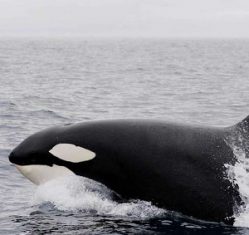
SE Alaska Chinook controversy attracts more user groups
A controversy over whether NOAA Fisheries is properly managing Chinook salmon stocks in Southeast Alaska, with consideration for a hungry whale population in decline, has been joined by sport and charter fishermen who say Alaska is not the problem. The environmental organization SalmonState, along with the Alaska Longline Fishermen’s Association and Alaska Trollers Association said on Monday, April 27, that sport and charter harvesters have joined them in support of NOAA Fisheries in a lawsuit brought by Wild Fish Conservancy, of Duvall, Washington. The group characterizes as misguided the decision of WFC to sue NOAA Fisheries in federal court to halt Chinook salmon trolling in Southeast Alaska effective July 1. >click to read< 16:15
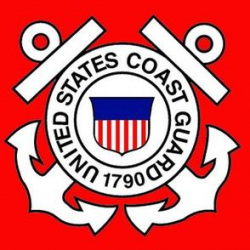
Coast Guard confirms serious problems with channel 16
By the time the U.S. Coast Guard issued an alert in mid-October about VHF-FM radio outages throughout Southeast Alaska, word had already spread through the commercial fishing fleet from harvesters worried that mayday calls might go unanswered. “I don’t think the fleet is aware of how severe of a problem this is,” said Jeff Farvour, a commercial harvester from Sitka. “Fishermen usually feel the Coast Guard is on to these things. It doesn’t look like it’s going to be fixed any time soon.” >click to read< 15:11
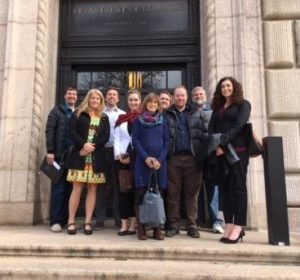
Alaska Fishing Delegation Heads To Washington
Representatives of the Alaska Longline Fishermen’s Association and the Alaska Marine Conservation Council– both members of the nationalFishing Communities Coalition (FCC) – were in Washington, DC, this week urging lawmakers to resist shortsighted efforts to weaken fishing communities by undermining key Magnuson-Stevens Act accountability provisions.,,, “The MSA is working in Alaska and around the country because all sectors adhere to scientifically-sound annual catch limits. >click to read<09:54
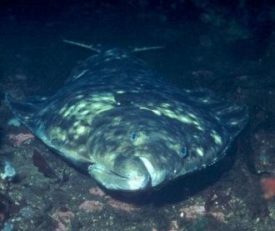
A tricky break for business fishermen: Pacific halibut catches more likely to drop subsequent 12 months
It‘s going to be a tough year for many Alaska fishermen. After announcements of a massive drop in cod stocks, the industry learned last week that Pacific halibut catches are likely to drop by 20 percent next year, and the declines could continue for several years. That could bring the coastwide catch for 2018, meaning from Oregon to British Columbia to the Bering Sea, to about 31 million pounds. Scientists at the International Pacific Halibut Commission interim meeting in Seattle revealed that survey results showed halibut numbers were down,,, click here to read the story 09:57
Fishermen at odds over impact of Trump executive order
 An executive order by President Donald Trump designed to radically cut back on federal regulations has spurred disagreement among fishermen about how it will affect them — and lawmakers and regulators aren’t sure what the answer is. Groups that represent both commercial and recreational fishermen are divided over whether Trump’s “one in, two out” approach to federal regulations will benefit their industry, harm it or not affect it at all.,, Several fishing groups, ranging from the Alaska Longline Fishermen’s Association to the Massachusetts Striped Bass Association, are joining Democratic Reps. Jared Huffman of California and Raul Grijalva of Arizona in asking Trump to rescind.,, Other industry interests, including the Fisheries Survival Fund, said the order will likely leave fisheries unaffected. The order would apply only to financially significant regulations, and that would not include things like opening fishing seasons and enforcing catch limits, said Drew Minkiewicz, an attorney for the fund. “All this talk about how you’re not going to be able to manage fisheries — not true, doesn’t apply, not going to happen,” he said. Read the full story here 15:04
An executive order by President Donald Trump designed to radically cut back on federal regulations has spurred disagreement among fishermen about how it will affect them — and lawmakers and regulators aren’t sure what the answer is. Groups that represent both commercial and recreational fishermen are divided over whether Trump’s “one in, two out” approach to federal regulations will benefit their industry, harm it or not affect it at all.,, Several fishing groups, ranging from the Alaska Longline Fishermen’s Association to the Massachusetts Striped Bass Association, are joining Democratic Reps. Jared Huffman of California and Raul Grijalva of Arizona in asking Trump to rescind.,, Other industry interests, including the Fisheries Survival Fund, said the order will likely leave fisheries unaffected. The order would apply only to financially significant regulations, and that would not include things like opening fishing seasons and enforcing catch limits, said Drew Minkiewicz, an attorney for the fund. “All this talk about how you’re not going to be able to manage fisheries — not true, doesn’t apply, not going to happen,” he said. Read the full story here 15:04
For fisheries regulations, a Trump edict signals uncertainty
 New England fishermen and conservationists fear one of President Trump’s executive orders will have disruptive effects on fisheries management, although it will not affect routine seasonal fisheries regulation, as some had initially feared. The order prompted a fiery letter three days later from two prominent Democratic congressmen pointing out it could have “devastating impacts on commercial and recreational fisheries and the businesses and communities they support.” “Effectively what it means is that nobody can do anything because agencies will have to stop doing major regulatory actions because you can’t comply with this order, which may be the point,” says a former top federal fisheries management official, Andrew Rosenberg, who is now director of the Center for Science and Democracy at the Union of Concerned Scientists. Drew Minkiewicz, a Washington, D.C., lawyer representing larger Eastern Seaboard scallop fishermen, says fishermen need not be concerned about most regulations. “This executive order has zero impact on 99.9 percent of the fishing regulations going out, so people who are wondering if the fishing season will be delayed don’t need to,” he says. “It’s much ado about nothing.” Read the article here 08:39
New England fishermen and conservationists fear one of President Trump’s executive orders will have disruptive effects on fisheries management, although it will not affect routine seasonal fisheries regulation, as some had initially feared. The order prompted a fiery letter three days later from two prominent Democratic congressmen pointing out it could have “devastating impacts on commercial and recreational fisheries and the businesses and communities they support.” “Effectively what it means is that nobody can do anything because agencies will have to stop doing major regulatory actions because you can’t comply with this order, which may be the point,” says a former top federal fisheries management official, Andrew Rosenberg, who is now director of the Center for Science and Democracy at the Union of Concerned Scientists. Drew Minkiewicz, a Washington, D.C., lawyer representing larger Eastern Seaboard scallop fishermen, says fishermen need not be concerned about most regulations. “This executive order has zero impact on 99.9 percent of the fishing regulations going out, so people who are wondering if the fishing season will be delayed don’t need to,” he says. “It’s much ado about nothing.” Read the article here 08:39
Fishing vessel energy audit aims to cut costs for fishermen
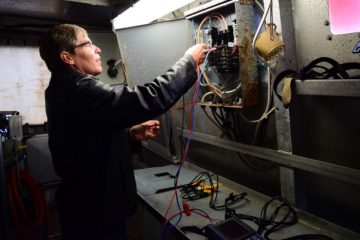 Commercial fishermen are largely at the whim of the seafood market. Prices can vary wildly, while operation costs stays the same — That is, until now. An energy audit aims to help Sitka’s fishermen increase their profit margins. It’s a sunny morning in Sitka. Usually Steve Fish — yes, that is his real name — would be out on his boat the Kariel, trolling for salmon or longlining for black cod or halibut. But today, the 66-foot fishing vessel and its captain are parked in the harbor. Fish has surrendered the Kariel to a swarm of engineers, who can’t help but ask about how his gear works. They’re all aboard the Kariel to conduct an energy audit of the vessel. Fish, along with 17 other fishermen in Sitka, volunteered for the audit. “It’s dollars and cents,” Fish says. For Fish and most others in the industry, each year those dollars and cents are spent at the pump. Audio, read the rest here 14:32
Commercial fishermen are largely at the whim of the seafood market. Prices can vary wildly, while operation costs stays the same — That is, until now. An energy audit aims to help Sitka’s fishermen increase their profit margins. It’s a sunny morning in Sitka. Usually Steve Fish — yes, that is his real name — would be out on his boat the Kariel, trolling for salmon or longlining for black cod or halibut. But today, the 66-foot fishing vessel and its captain are parked in the harbor. Fish has surrendered the Kariel to a swarm of engineers, who can’t help but ask about how his gear works. They’re all aboard the Kariel to conduct an energy audit of the vessel. Fish, along with 17 other fishermen in Sitka, volunteered for the audit. “It’s dollars and cents,” Fish says. For Fish and most others in the industry, each year those dollars and cents are spent at the pump. Audio, read the rest here 14:32
Groups hope MSA update won’t move fish conservation ‘backwards’
A number of regional fishing associations are joining forces to strengthen the Magnuson-Stevens Act. The Sitka-based Alaska Longline Fishermen’s Association announced last week (9-9-14) that it’s reached an agreement with the Alaska Marine Conservation Council and several east-coast industry groups to form the Fishing Community Coalition. Read the rest here 21:25

































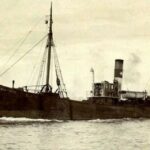
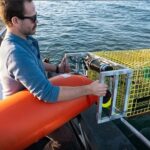
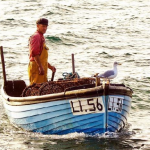

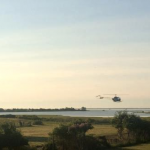
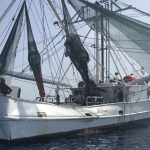
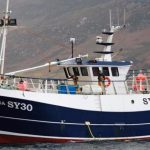
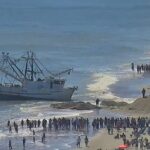

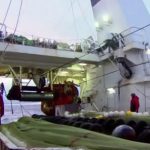



Council Comment Cancel Culture – NPFMC, citing profanity, tightens public comment policy
The North Pacific Fishery Management Council says recent profane comments had prompted the move. Some fishermen and community organizers say that’s a bunch of bull. For all the controversy and emotion that can accompany fisheries debates, the federal council that manages fisheries in the North Pacific says it hadn’t ever received public comments with explicit language, until last month.,, Linda Behnken, says she’s never seen the council move so quickly. “I mean, never seen them bring something up, take action, boom, done without more opportunity for meaningful engagement,” >click to read< 11:42
Share this post